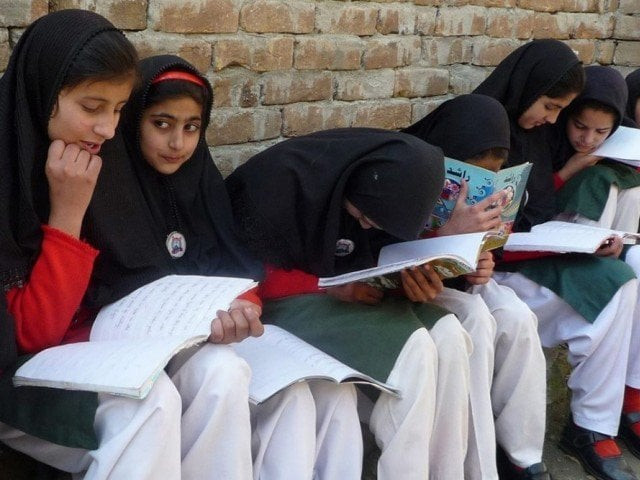Twice as many girls, as boys will never enter school: UN
Roughly 40% of girls and 33% of boys of primary-school age were out of school in Pakistan

Forty one per cent of rural and 26% of urban primary-school age children were out of school. PHOTO: REUTERS
The report fount that a total of 121 million children and adolescents have either never started school or dropped out in world (5 million in Pakistan), in spite of the international community’s promise to achieve Education for All by 2015.
Worldwide, one out of every ten children of primary-school age is out of school compared to one in five adolescents.
The joint report Fixing the Broken Promise of Education for All: Findings from the Global Initiative on Out-of-School Children, found that as children get older, the risk that they will never start school or will drop out increases.
Some 63 million young people between the ages of 12 and 15 were denied the right to an education.
This means that globally one in five adolescents will be out of school, primarily because they are poor and marginalised.
More girls, than boys out of school in Pakistan
According to UNESCO data, roughly 40% of girls and 33% of boys were out of school in Pakistan, pointing towards a key gender disparity in education.
Forty one per cent of rural and 26% of urban primary-school age children were out of school, with a total of 5 million children out of school. Nearly 71% of the 20 million primary-school age children in Pakistan lived in rural areas.
According to the data, 33% of rural and 22% of urban children will never go to school, while 63% of rural and 74 % of urban children will enter school at a later stage.
The data also found that twice as many girls, 43%, as boys, 20%, will never enter school.



















COMMENTS
Comments are moderated and generally will be posted if they are on-topic and not abusive.
For more information, please see our Comments FAQ